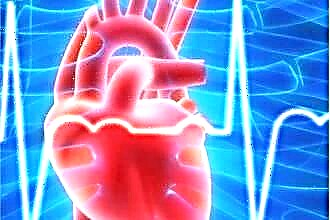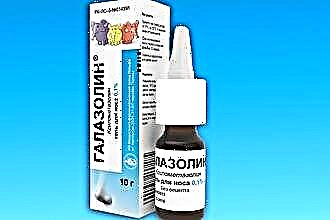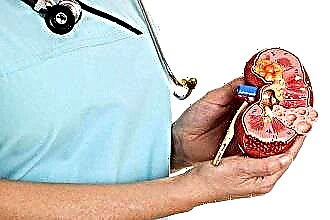 To cope with a runny nose, complex treatment is needed, which includes physiotherapy and topical medications, for example, nose drops for vasomotor rhinitis.
To cope with a runny nose, complex treatment is needed, which includes physiotherapy and topical medications, for example, nose drops for vasomotor rhinitis.
If conservative methods are ineffective, surgical treatment can be performed. The operation consists in removing the dilated blood vessels of the nasopharynx (vasotomy), which have lost the ability to spasm. For this, electro-, radiosurgery can be used. Consider conservative therapy. It includes the appointment:
- vasoconstrictor;
- antihistamines;
- hormonal drugs.
Vasoconstrictor drops
The action of the drugs is directed at the adrenergic receptors of the blood vessels, as a result of which the diameter of the latter decreases. Clinically, this is manifested:
- decrease in swelling of the mucous membrane;
- a decrease in the volume of nasal discharge;
- restoration of nasal breathing;
- reduction of nasal congestion.
Daily use of vasoconstrictors is allowed no more than four times a day in strictly recommended doses.
Drops for vasomotor rhinitis:
- Pharmazoline;
- Xymelin;
- Xylo Mefa;
- Tizine;
- Nazivin;
- Nazol;
- Rinonorm;
- Rinostop;
- Evkazolin;
- Xilen;
- Snoop;
- Naphtizin.
Xylen is based on ximetazoline (a medium-acting substance). It is available in the form of a solution with different concentrations (0.05%, 0.1%), which makes it possible to use it in childhood.
The effect develops a few minutes after nasal instillation and lasts up to 10 hours. Xylene has a local effect, is not absorbed into the general bloodstream, therefore it has no systemic side effects.
Contraindications include:
- hypersensitivity to components;
- pronounced atherosclerotic vascular disease;
- uncontrolled hypertension;
- cardiopalmus;
- atrophic type of rhinitis;
- glaucoma.
Caution should be observed in people with diabetes mellitus, prostate adenoma, hyperthyroidism and angina pectoris. The drug is incompatible with tablet forms of antidepressants. In the case of prolonged use of Xylen, dryness, burning sensations, tickling in the nasopharynx, sneezing, and rhinorrhea may worsen.
Quite rarely, vomiting, headache, heart palpitations, cardiac arrhythmias, insomnia, and visual dysfunction are observed. In addition, psycho-emotional disorders are possible.
The decision to carry out treatment with Xylen during pregnancy is made exclusively by the doctor, taking into account the trimester, the woman's condition and the severity of the disease.
The drug is used in 2 drops no more than three times a day.
Before instillation, the nasal passages should be cleaned with saline (Marimer, Dolphin, Humer).
Vasoconstrictor drugs have a pronounced therapeutic effect, but they have a lot of contraindications and side effects. In this regard, they are prescribed in a short course (up to 5 days), only with severe rhinitis and the threat of complications (otitis media, sinusitis, apnea). The medicinal effect lasts about 4-10 hours (depending on the composition), however, vasospasm can persist much longer.
Antihistamines
If the cause of vasomotor rhinitis is an allergic reaction, antihistamine drugs should be used in the treatment of the disease.
 To completely get rid of the symptoms of the disease, you should stop the person's contact with the provoking factor. Allergies can be caused by:
To completely get rid of the symptoms of the disease, you should stop the person's contact with the provoking factor. Allergies can be caused by:
- wool, dust, pollen, fluff;
- pungent odors;
- cosmetics, household chemicals;
- medications;
- Food.
Drops for vasomotor rhinitis are aimed at reducing the severity of allergy symptoms by blocking the release of biologically active components.
Levocabastine
The active ingredient Levocabastine is part of Tizin Alerji and many other drugs. It blocks receptors that are sensitive to histamine. As a result, the swelling of the mucous membrane, rhinorrhea, nasal congestion decreases, and nasal breathing is facilitated. Clinically, you can also notice a decrease in the severity of itching and the volume of discharge. The local effect after nasal instillation develops after 5 minutes and lasts up to 11 hours. Partial absorption of the drug into the general bloodstream does not cause systemic reactions.
Before instilling the drug, it is necessary to cleanse the nasal passages with saline solution. Patients over six years of age are prescribed two doses twice a day. In consultation with the doctor, the frequency of use can be increased to four.
If, after three days from the start of therapy, the symptoms do not decrease, you should consult your doctor. The duration of the therapeutic course is 4 weeks.
Levocabastine is prescribed with caution to people with renal dysfunction. If the color of the solution changes, it must be discontinued. If the recommended doses are exceeded, drowsiness and other disorders of the nervous system may appear. In this regard, one should not engage in hazardous activities (driving vehicles). Contraindications include hypersensitivity and lactation period. The restrictions also apply to pregnancy.
During the gestation period, treatment with Levocabastine is allowed only after the ratio of the risk to the embryo and the benefit to the woman. During therapy, breastfeeding should be discontinued.
After using the drops, in rare cases, there is a headache, dizziness, as well as a change in the psychoemotional state in the form of irritability. Local adverse reactions are dryness, painful, burning sensations and sore throat in the nasopharynx. On the part of the skin, rashes may appear. Also, nausea, tachycardia, muscle pain and cough are not excluded.
With the joint administration of Levocabastine and drugs based on oxymetazoline (Nazivin), a slowdown in the absorption of the antihistamine drug is observed.
Other antihistamines
In addition to Tizin Alerji, other equally effective nasal drops may be prescribed:
- Cromohexal;
- Kromoglin;
- Sanorin Anallergin;
- Allergodil.
In addition to drugs with local action, the appointment of tablet forms of antihistamines is required.
Corticosteroids
 Steroid-based medicines are widely used for the common cold in severe cases. They have powerful anti-inflammatory, antihistamine and decongestant effects. In the treatment of chronic vasomotor rhinitis, hormonal agents are an indispensable component of therapy. Self-administration of glucocorticosteroids is not recommended.
Steroid-based medicines are widely used for the common cold in severe cases. They have powerful anti-inflammatory, antihistamine and decongestant effects. In the treatment of chronic vasomotor rhinitis, hormonal agents are an indispensable component of therapy. Self-administration of glucocorticosteroids is not recommended.
Among the common drugs, we highlight:
- Nazonex;
- Aldecin;
- Avamis;
- Beconase;
- Nazakort;
- Nasobek.
Long-term use of hormonal agents in high doses is fraught with local immunosuppression, thinning of the mucous membrane and addiction.
The drug belongs to synthetic drugs with hormonal activity.Its action is aimed at suppressing the inflammatory process, blocking the allergic reaction and alleviating the general condition by restoring nasal breathing.
The effect is to reduce tissue edema and glandular secretion. Aldecin is prescribed for hay fever and year-round rhinitis of allergic origin. A special therapeutic effect has been observed in vasomotor rhinitis.
Contraindications include:
- systemic infection of a bacterial, fungal, viral type;
- frequent nasal bleeding;
- latency period of tuberculosis;
- hemorrhagic diathesis;
- surgical interventions or injuries of the nasopharynx in the past six months;
- hypersensitivity to drug components;
- children's age up to six years.
The question of the use of steroids for pregnant women is decided only by a doctor after assessing the severity of the disease and the woman's condition. The dosage is 1-2 doses up to four times a day. After reaching the therapeutic effect, the drug is withdrawn gradually.
Of the side reactions, we single out:
- individual intolerance;
- hives;
- bronchospasm;
- hoarseness;
- increased intraocular pressure;
- sneezing;
- burning sensations in the nasopharynx;
- bloody coryza;
- ulcerative lesion of the nasopharyngeal mucosa;
- headache;
- decreased sense of smell;
- dry mouth.
Septal perforation and activation of a fungal infection are a serious complication of hormone therapy, which is difficult to cope with.
The therapeutic effect develops three days after the start of treatment with corticosteroids.
You can enhance the effect of medications with the help of physiotherapeutic procedures, for example, UFO, UHF, laser therapy. They stabilize the tone of blood vessels and improve metabolic processes. Usually 5-10 procedures are prescribed.
Do not forget about strengthening the immune system, on the strength of which depends not only the success in the treatment of vasomotor rhinitis, but also the general health of a person.



